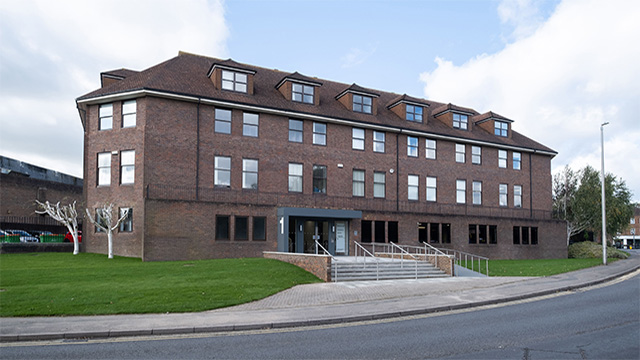Behind Atlas’s £300m UK BTR drive
Atlas Residential is to invest £300m in UK build-to-rent products as part of a global rental push to acquire development opportunities and distressed assets.
The BTR investor-operator has announced a Hong Kong-based joint venture with a $1bn investment to create a global BTR portfolio.
Atlas Residential Holdings (Hong Kong) Ltd has allocated 65% of funds to the US, 20% to China and 15% to the UK market.
Atlas Residential is to invest £300m in UK build-to-rent products as part of a global rental push to acquire development opportunities and distressed assets.
The BTR investor-operator has announced a Hong Kong-based joint venture with a $1bn investment to create a global BTR portfolio.
Atlas Residential Holdings (Hong Kong) Ltd has allocated 65% of funds to the US, 20% to China and 15% to the UK market.
An equity investment of £121m with debt will give Atlas more than £300m for acquisitions in the UK, said Atlas chief executive Steven Ivankovich.
“The focus is population and job growth centres, where we have the ability to add value and services, and reliably raise the rents,” says Ivankovich.
“The US is the biggest sandbox, the most mature market. We’ll be doing almost no development because there is such a large amount of inventory. We’ve just entered mainland China, where the government policy is favouring creating a rental apartment sector.
“We are allocating 15% of the funds to the UK market, to continue our trajectory and really focus on strategic ground-up development.”
The jv has been 18 months in the making, and now Atlas is pressing ahead with the pipeline of acquisitions. It has a brand new development team, hoping to invest that first wave of finance over the next two years.
Atlas exchanged on its first two sites in China, comprising around 1,000 units, and hopes to complete these acquisitions before the end of the year. In the UK is it currently in negotiations and hopes to raise momentum, targeting 1,000 units a year with a goal to ultimately build a 10,000-home portfolio.
Targeting distress
Where the operator has previously tended to forward fund in jvs and take a stake of the profits, now it seeks to acquire land and develop and take on failing private sale or BTR homes. These “distressed assets” may be under-occupied, under-rented, with higher margins and excessive turnover.
“A lot of developers used PRS as an anchor to get development dollars, but making the bet that the sales market would come back. It hasn’t, and now they are scrambling to manage these buildings.
“I think people had banked on either exiting or higher levels of revenue, where the money could be deployed better elsewhere. But the asset isn’t any better under the current regime and they are looking to exit.”
Ivankovich points to challenges for inexperienced UK operators and opportunity through developer competition in Manchester, struggling for-sale schemes in London and fresh potential in Brighton.
Acquisition targets in the capital are likely to be smaller, with schemes dipping to potentially 50 units compared with larger developments of at least 250 units in the regions, where the rents are lower. But Atlas is flexible and will be led by the market.
“We’re going to be seeing some developers that are underperforming and that will create some opportunities. We’re already seeing whisperings of that in the market,” says Ivankovich. “Our stock-in-trade has always been value add, acquiring existing assets in need of management, enhancement or physical refurbishment.”
Breaking the UK
Atlas has partnered with Liam Russell Architects, taking on a team of six architects, development managers and planners at its London HQ, bringing the corporate team to 10.
This comes after a series of high-level changes, with UK managing director Jonathan Ivory leaving for Henley Investment Management, replaced by Kelvin Sutherland.
Investment director Alistair Wardell followed Ivory to Henley, and director of property operations Stephanie Smith moved to Invesco last month.
But Ivankovich is optimistic, with new hires to be announced in the coming weeks. “We have brought in a team that could handle the growth and be a bit more entrepreneurial and more of a development team.”
Atlas made its first attempt to break into the UK in 2006 through a £350m joint venture with HBOS. The UK’s largest mortgage lender folded in 2009 following the crash. It became part of Lloyds Banking Group, and the jv dissolved.
“That would have been well ahead of its time,” says Ivankovich. “The target was always to create a global portfolio of homogeneous assets in different markets to create diversity and security. It was a very hard sell, investors tend to be a little bit more provincial and focused.”
The US operator eventually entered the UK in 2015 through a tie-up with Rockspring, acquiring two sites in Southampton and Birmingham of 600 units. It has expanded to Manchester MediaCity and 100 Greengate in Salford, but stepped away from Birmingham, leaving it with a portfolio of around 900 units.
Brexit won’t put the brakes on investment, says Ivankovich. “We look at the fundamentals of the real estate and the economy first, and then we deal with currency strategies afterwards,” he says.
The difference between now and its first attempt in the UK is “the capital has factored in a UK decline”. Could Atlas overcome another global financial crisis? “We’re not anticipating it, but we will be ready for it, both financially and operationally.”











